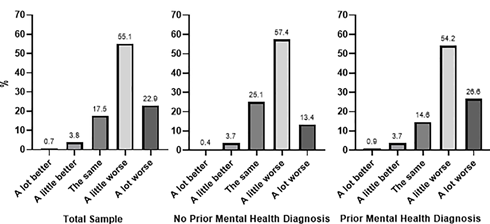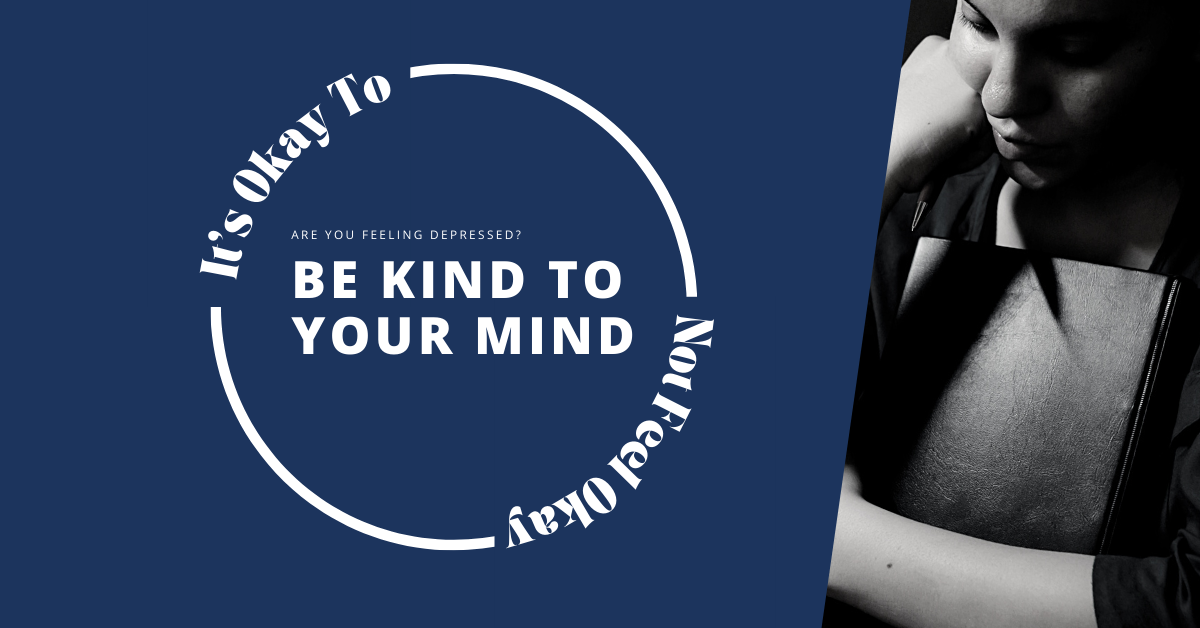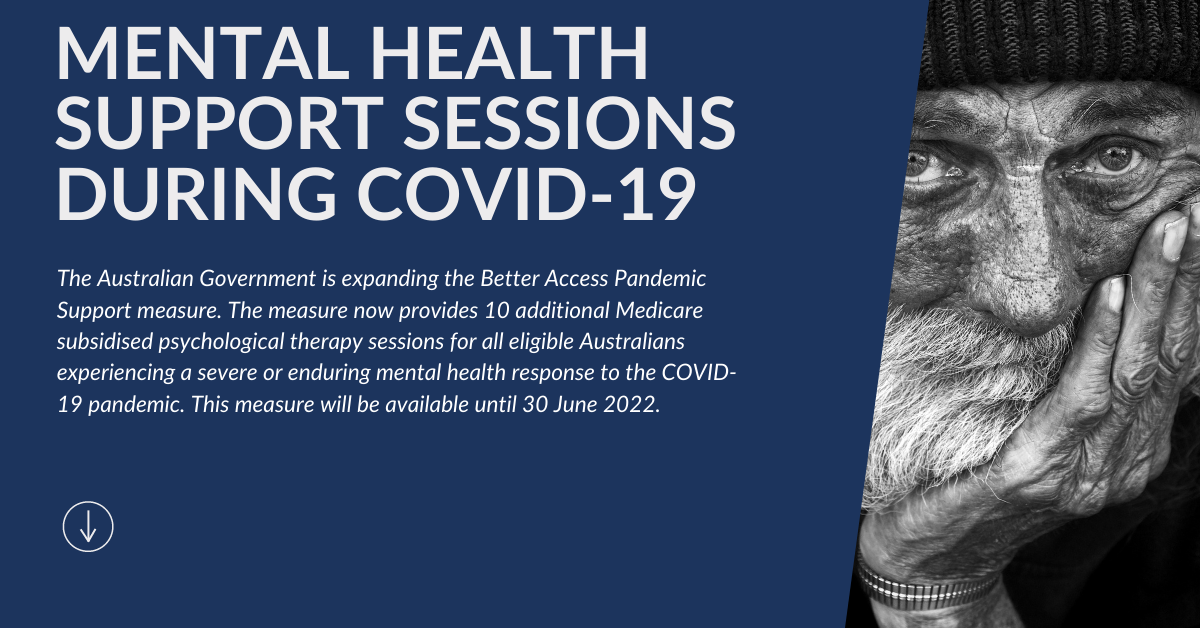When the first case of the Coronavirus came to Australia in the state of Victoria on 25th January 2020, nobody had an inch of a clue how this virus would remodel their life, how the norms of hanging out, hugging friends and families would be replaced by staying alone at homes, doing online jobs and wearing masks all the time. The strict restrictions imposed by the Australian government and the travel ban forced the citizens to stay locked up in their homes and be safe. However, this safety came with a lot of frustration, loneliness, anxiety, and depression.
Various factors are contributing to the worsening mental health of Australians since the pandemic. According to the data conducted in various states of Australia, since February 2020, 800,000 Australian jobs have been lost due to Coronavirus. [1]Moreover, in April 2020, underemployment hit the highest and reached 13.6%, implying that the pandemic reduced 1.8 million citizens’ working hours to 0 hours.
In another survey, 63% of people who have lost their jobs due to Covid feel high financial stress.

A coronavirus is a highly contagious respiratory disease, due to which strict protocols are being followed in the hospitals and wards occupied with covid patients. The rules are so rigid that even the family members of the patients are not allowed to visit. The sudden loss of the death of friends and family and not being there for them bring psychological distress.
Coronavirus also welcomed people with panic attacks and fear of getting infected. This fear amplified in their minds to such an extent that they got obsessed with washing hands, applying sanitiser, and taking showers multiple times a day. This obsession also belongs to symptoms of mental disorder which is not given much attention.
Most citizens do not favor the idea of living in unpredictable conditions. This way of living requires leaving their comfort zone. The major problem arises with the older citizens of Australia; most of them rely on community facilities for meals, home help, and communal activities that have to be put on hold for health purposes. In addition, most older citizens are awaiting their elective surgeries or treating their “not so high risk” disease. Hence, they are living in constant pain, which brings physical and mental health deterioration.
The travel ban in Australia has led to the citizens being away from their families and loved ones in different countries, which causes loneliness and sadness among them.
According to the online survey conducted from 27th March to 7 April 2020, 78% of citizens who responded said that their mental health has worsened since the pandemic,25.9% had a fear of contracting coronavirus, 62% were reported to have depression, and one out of 4 respondents reported high anxiety. [2]

Comparison of Mental Health Status of Australians Since the Pandemic
Coping with stress
The effect of coronavirus on mental health is an alarming situation and needs to be controlled. There is not enough guarantee when the situation will get better. Hence, it’s time to look for better ways of living and deal with the situation ourselves.
It is important to know that one is not alone, and many others are going through the same situation in such bad times. Talk to a friend on the phone or message and share the fears and thoughts or try to learn a new hobby every day to keep the loneliness and intrusive thoughts away. Or, if the symptoms such as irritation, restless sweating, trouble concentrating, tachycardia, laziness, and suicidal thoughts persist, it’s better to seek help from a professional psychologist.
References:
- Churchill, B. (2021). COVID‐19 and the immediate impact on young people and employment in Australia: A gendered analysis. Gender, Work & Organization, 28(2), 783-794.
- Newby, J. M., O’Moore, K., Tang, S., Christensen, H., & Faasse, K. (2020). Acute mental health responses during the COVID-19 pandemic in Australia. PloS one, 15(7), e0236562.







